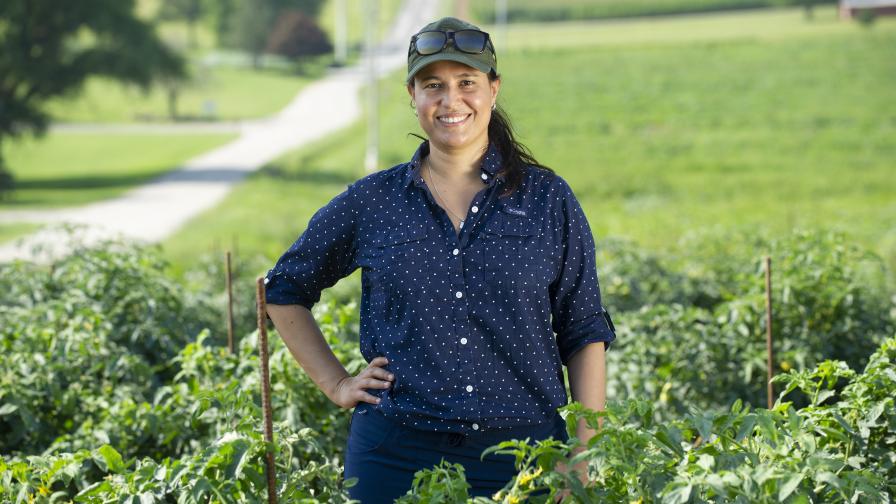Ohio State University Conference Offers Education And Support For Cover Crops, Conservation Tillage
As more and more growers discover the benefits of cover crops to their overall soil health and use them on their farmland, Ohio State University’s College of Food, Agricultural, and Environmental Sciences (CFAES) will offer a day-long workshop on the impact and benefits of cover crops during this year’s Conservation Tillage Conference (CTC) March 4-5.
Farmers’ use of cover crops has increased significantly over the past five years as more growers learn about their multiple benefits, said Randall Reeder, a retired Ohio State University Extension agricultural engineer and an organizer of the annual CTC conference.
“One of the latest trends by many farmers is to use a blend of multiple varieties of cover crops to improve the overall soil performance,” Reeder said. “They use a blend of up to 10 different varieties including legumes and non-legumes, tall and short stature cover crops, and different rooting patterns that include deep-rooted or shallow roots.
“This provides multiple benefits including erosion control, improved soil structure, nutrient management, wildlife habitat, and the potential for higher yields.”
The use of cover crops is just one of many topics farmers can expect to learn more about during the two-day CTC conference. More than 900 participants are expected to attend the conference, which is offered by OSU Extension and the Ohio Agricultural Research and Development Center.
OSU Extension and OARDC are the outreach and research arms of the college.
The annual conference will offer the latest research, insight, tips and techniques on conservation tillage including cover crops, no-till, soil quality, seeding technology, water quality and nutrient management, Reeder said.
In all, the two-day conference will feature some 60 presenters, including more than 20 CFAES researchers and Extension educators, farmers, and industry representatives. In addition to a “Corn University” and a “Soybean School,” information presented will include nutrient management, water quality, advanced scouting and machinery, and precision farming, he said.
Certified Crop Adviser (CCA) continuing education credits are available, with an emphasis on soil and water and nutrient management hours, organizers said.
“The impact of the conference is felt across the region, considering that we typically attract participants from several states including Ohio, Indiana, Pennsylvania, Michigan, and even Ontario, Canada,” Reeder said. “With about 400 certified crop advisers attending the conference, the impact is significant, considering that each CCA affects about 30,000 acres of farmland on average, helping lead farmers to potentially produce higher yields at less cost and earn higher profits.
“The ultimate goal of the conferences is to keep providing the most current information to farmers and CCAs for the benefit of all farmers, producers and landowners across the region. And ultimately the people who benefit the most are consumers who are able to have access to the best quality products as a result.”
Other conference topics will include:
- The use of unmanned aerial vehicles (drones) in agriculture
- Healthy soil
- Planter performance
- Earthworms and cover crops
- Corn seeding rates
- Soybean fertility needs
- Soybean growth limits
- Phosphorus from agriculture watersheds
- Reducing phosphorus in swine and dairy manure
- Adaptive management to reduce phosphorus and nitrogen
- Disease management
- Conservation practices and crop insurance
- New technologies for viewing and analyzing crop growth
- Reducing phosphorus in surface water
- Two-stage ditches
The CTC conference is March 4-5 at the McIntosh Center of Ohio Northern University in Ada. The full schedule and registration information can be found at http://ctc.osu.edu. Participants may register online or by mail. Registration for the full conference is $85 (or $65 for one day) if received by Feb. 21.
Information is also available in county offices of OSU Extension.
The conference is sponsored by OSU Extension, OARDC, the Ohio Soybean Council, the Ohio Corn and Wheat Growers Association, Northwest Ohio Soil and Water Conservation Districts, the USDA’s Natural Resources Conservation Service, and the Ohio No-Till Council.
Source: OSU Press release









